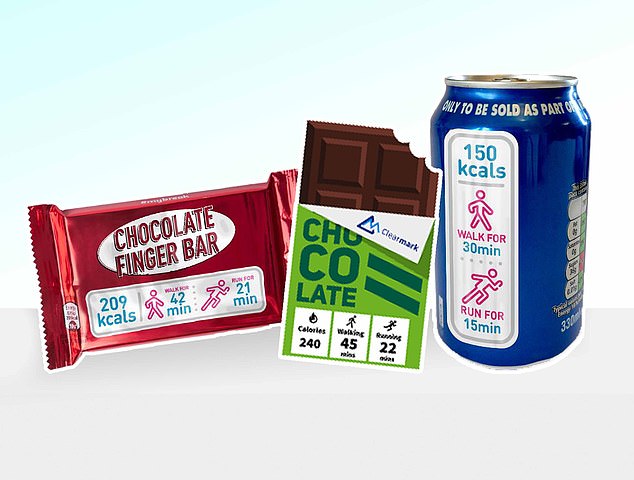Calorie labels are a SHAM! Research shows that the nanny state policy has a pathetic effect on our meal choices
Calorie labels on menus have no effect on dietary habits because people ‘don’t understand what the numbers actually mean’, a study suggests.
In April 2022, the government in England introduced a policy requiring the use of calorie labels by all food stores with more than 250 employees.
It was hoped that by listing the number of calories next to each dish, consumers would think twice about what they eat when they visit takeaways, cafes and restaurants to help combat rising obesity rates.
But the policy has had no significant effect on the number of calories people buy or consume, a study suggests – and it could be because people still don’t understand exactly what the numbers mean.
Researchers from the University of Liverpool conducted two studies before and after the law was introduced to see if it led to changes in behavior.
They collected data from more than 6,500 people of all ages who had purchased food from more than 300 outlets, including pubs, restaurants, cafes, fast food outlets and entertainment venues.
Analysis found that after the law was implemented, people were more likely to notice and use the calorie labeling system.
They also estimate the calorie content of their meals more accurately.
Researchers found that awareness of calories in food was greater among women, and among those who were better off.
However, there was no significant difference in the number of calories purchased or consumed.
On average, people ate about 18 fewer calories after the policy was implemented – the energy equivalent of about nine grapes.
Lead researcher Dr Megan Polden said: ‘The introduction of mandatory calorie labeling alone was not associated with significant dietary changes when it comes to eating away from home.’
The findings, published in the journal Nature Human Behavior, found that awareness and use of the calorie labeling system was higher among women, older adults and people who were better off.
People were also more likely to notice calorie labels when ordering in pubs, possibly because they spent more time perusing the menu.
Reasons for their findings may be that many places still aren’t implementing calorie labels on menus and people still don’t understand how calories work, the team suggested.
“We know that many companies did not provide calorie labeling as recommended, and that some companies did not provide calorie labeling at all, which could obviously explain our results,” said Professor Eric Robinson, who also worked on the study.

‘Our results may also indicate that a combination of strategies… such as educating the public about calorie intake and clearer labeling, may be needed to support healthier consumer choices.’
The study states that a potential barrier to the use of calorie labeling “may be a lack of public understanding of the kcal information presented.”
Commenting on the findings, Professor Amanda Daley, Director of the Center for Lifestyle Medicine and Behavior at Loughborough University, said: ‘One problem with calorie labeling is that it just displays numbers on a page, without any context in which it public can understand what the numbers are. actually mean when they make decisions about food.’
She added that the study was based on self-reported data rather than actual transactions or information about the food consumed, so this is “important to consider when interpreting the results.”
Tom Sanders, Emeritus Professor of Nutrition and Dietetics at King’s College London, said: ‘The conclusion of this study is that mandatory calorie labeling is itself an ineffective public health measure to prevent obesity.
‘This would support the view that calorie labeling alone does not motivate people to change their dietary habits.
‘However, calorie labeling is useful for people who are motivated.
‘Mandatory nutrition labeling has also helped computer programs and apps provide accurate and timely estimates of nutrient intake using product barcodes, which is useful for nutritionists, dietitians and motivated individuals.
‘Therefore, it would be a step backwards to abolish mandatory calorie labeling for the away-from-home food sector.’
